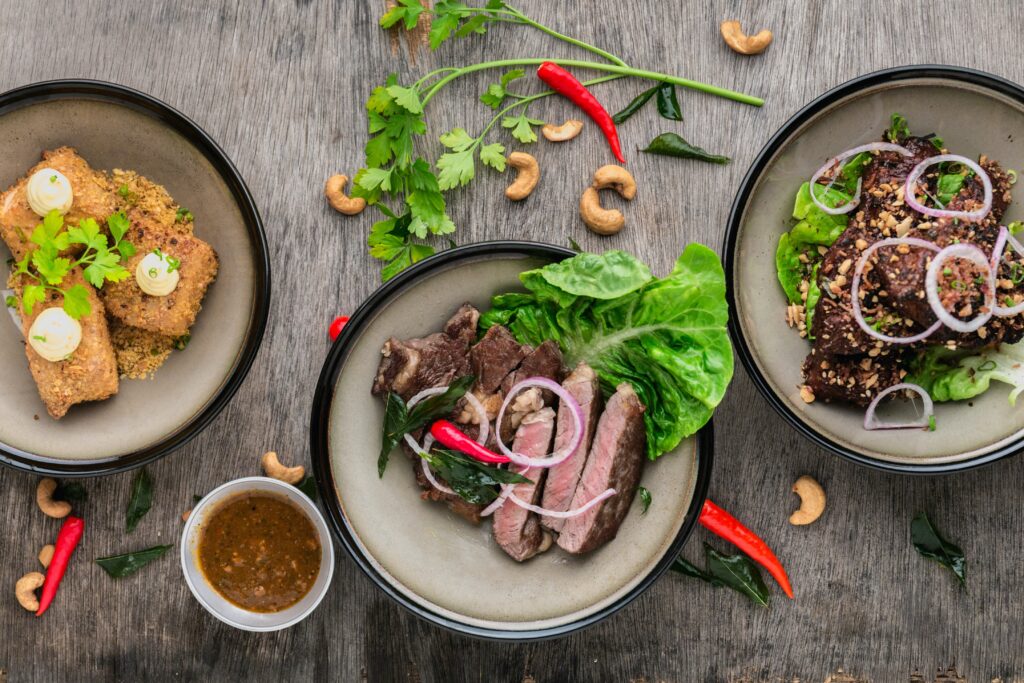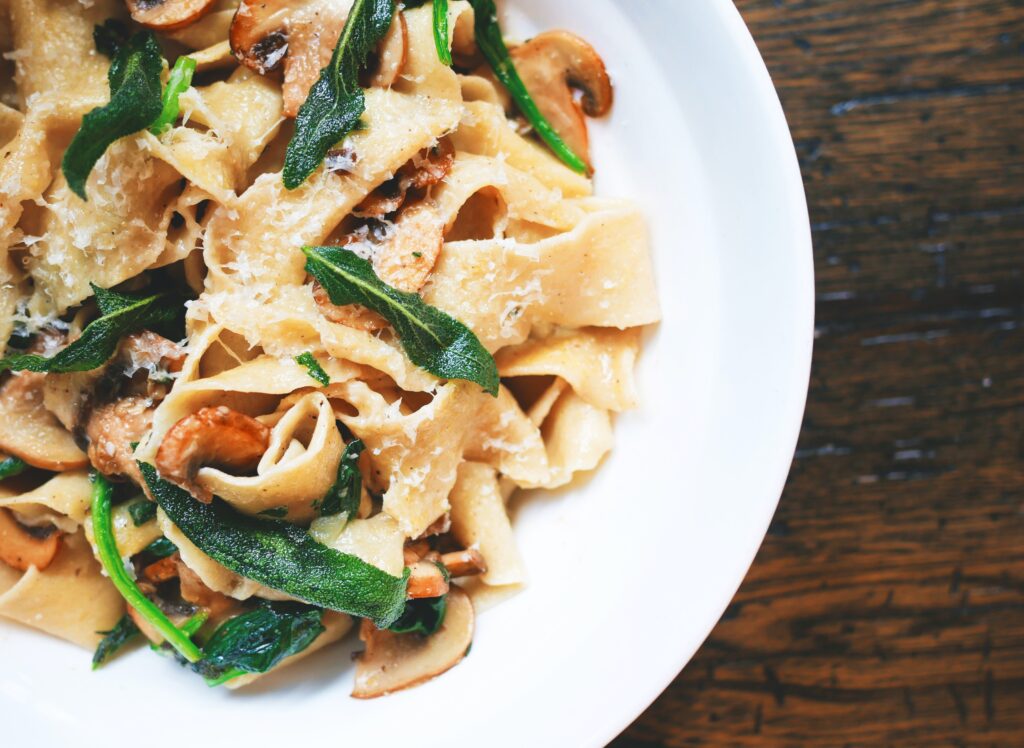
If you’re a devoted cat owner, you’ve probably found yourself pondering over that crucial question: what is the best diet for a cat? As you strive to provide the best care for your feline companion, it’s essential to understand that a well-balanced diet plays a significant role in their overall health and happiness. So, let’s embark on a delicious journey together, exploring the key elements of a feline-friendly diet and discovering the ultimate recipe for a healthy and satisfied cat.
Table of Contents
Benefits of a Healthy Diet for Cats
Maintains a Healthy Weight
Feeding your cat a healthy diet is essential for maintaining an ideal weight. Just like humans, overweight cats are more prone to health issues such as diabetes, heart disease, and arthritis. By providing a balanced diet that is rich in nutrients and appropriate portion sizes, you can help your cat achieve and maintain a healthy weight.
Promotes a Glossy Coat
A healthy diet plays a vital role in promoting a shiny and lustrous coat for your feline friend. Essential nutrients like omega-3 and omega-6 fatty acids, found in high-quality cat food, help to moisturize the skin and enhance the natural beauty of their fur. A diet lacking in these nutrients can result in a dull and lackluster coat.
Boosts Immune System
Proper nutrition is crucial for boosting a cat’s immune system and protecting them from various illnesses. A well-balanced diet provides the essential vitamins and minerals necessary for a strong immune response. With a healthy immune system, your cat will be better equipped to fight off infections and diseases.
Prevents Dental Problems
Maintaining good oral health is essential for your cat’s overall well-being. A healthy diet, particularly one that includes crunchy dry food or dental treats, can help prevent dental problems such as plaque and tartar buildup, gum disease, and tooth decay. Chewing on dry food promotes better dental hygiene by scraping off debris and stimulating saliva production, which naturally cleanses the teeth and gums.
Understanding a Cat’s Nutritional Needs
Essential Nutrients for Cats
Cats have specific nutritional requirements that are different from other animals. They are obligate carnivores, which means they require a diet primarily consisting of animal protein. Other essential nutrients for cats include fats, carbohydrates, vitamins, minerals, and water.
Protein Requirement
Protein is a crucial component of a cat’s diet as it provides the necessary amino acids for growth, repair, and maintenance of body tissues. The protein in cat food should come from high-quality animal sources, such as chicken, turkey, or fish, and should make up a significant portion of their diet.
Water Intake
Proper hydration is essential for maintaining a cat’s overall health. Cats have a low thirst drive and often do not drink enough water on their own. Including wet or canned food in their diet helps increase their overall water intake, keeping them well-hydrated and preventing conditions like urinary tract diseases.
Importance of Taurine
Taurine is an essential amino acid for cats that is found naturally in animal tissues, especially meat. Cats cannot produce sufficient taurine on their own, so it must be obtained through their diet. Taurine plays a vital role in maintaining healthy eyes, heart function, and reproductive health in cats.
Fats and Fatty Acids
Although often associated with negative connotations, fats are an essential part of a cat’s diet. Fats provide concentrated energy, aid in the absorption of fat-soluble vitamins, and help maintain healthy skin and fur. Omega-3 and omega-6 fatty acids, found in fish and certain plant oils, contribute to the overall well-being of cats.
Carbohydrates and Fiber
While cats have a limited ability to digest carbohydrates, a small amount of high-quality carbohydrates can be included in their diet. Some carbohydrates provide a source of energy, fiber, and aid in proper digestion. However, it is important to ensure that a cat’s diet does not contain excessive amounts of carbohydrates, as they primarily require protein.
Vitamins and Minerals
Vitamins and minerals are essential for maintaining optimal health in cats. They play a crucial role in various bodily functions, including bone development, immune system support, and proper growth. High-quality commercial cat food is formulated to provide the necessary vitamins and minerals, ensuring cats receive a well-rounded diet.

Types of Cat Food
Wet/Cat Canned Food
Wet or canned food is a popular option for cat owners due to its high moisture content and palatability. It provides cats with essential hydration and can be beneficial for those who don’t drink enough water on their own. Wet food also comes in a variety of flavors and textures, catering to different feline preferences.
Dry/Kibble Food
Dry or kibble food is a convenient option for many cat owners. It has a longer shelf life, is often less expensive, and can help to maintain dental health by reducing plaque and tartar buildup. Dry food is typically energy-dense, so portion control is essential to prevent overeating and obesity.
Semi-Moist Food
Semi-moist food is another option available for cat owners. It is typically higher in moisture content than dry food but doesn’t require refrigeration like wet food. However, it is important to note that semi-moist food often contains higher levels of artificial flavors, preservatives, and sugars, so it should be fed in moderation.
Raw Food Diet
Raw food diets, also known as a “BARF” (Biologically Appropriate Raw Food) diet, involve feeding cats a combination of raw meat, bones, organs, and other ingredients. Proponents of this approach argue that it closely mimics a cat’s natural diet in the wild. However, it is crucial to consult with a veterinarian before considering a raw food diet, as there are potential risks associated with bacterial contamination and nutritional deficiencies.
Home-Cooked Meals
Some cat owners prefer to prepare home-cooked meals for their feline companions. While this can be a labor-intensive option, it allows for better control over the ingredients and quality of the food. However, it is important to work closely with a veterinary nutritionist to ensure the homemade meals meet all of the cat’s nutritional requirements.
Commercial Cat Food
Benefits of Commercial Cat Food
Commercial cat food has been specifically formulated to meet cats’ nutritional needs, ensuring they receive a balanced diet. It undergoes rigorous testing and quality control measures to ensure safety and proper nutrient content. Commercial diets come in a wide range of options, catering to specific life stages, dietary restrictions, and medical conditions.
Understanding Cat Food Labels
Reading and understanding cat food labels is vital for making informed decisions about the quality and appropriateness of the food for your cat. Look for labels that indicate the food meets the nutritional standards set by reputable organizations such as the Association of American Feed Control Officials (AAFCO).
Choosing the Right Commercial Cat Food
When selecting a commercial cat food, consider your cat’s specific needs, such as age, activity level, and any existing health conditions. Consult with your veterinarian to determine which type of commercial cat food is most suitable for your feline friend.
Common Additives to Avoid
When reading cat food labels, it is important to be aware of common additives that may be harmful to your cat’s health. These additives can include artificial colors, flavors, and preservatives. Opt for cat foods that are free from these additives or choose options with natural alternatives.

Feeding Frequency and Portion Control
Determining the Proper Portion Size
Maintaining an appropriate portion size is crucial for preventing obesity and ensuring that your cat receives adequate nutrition. The feeding guidelines provided by cat food manufacturers on the packaging can serve as a starting point, but it’s important to monitor your cat’s weight and adjust portion sizes as needed.
Feeding Schedules for Different Age Groups
Cats have different nutritional needs at various stages of their lives. Kittens require more frequent meals and higher calorie intake to support their growth and development. Adult cats typically do well with two meals a day, while senior cats may benefit from smaller, more frequent meals to accommodate any age-related changes.
Considering the Cat’s Activity Level
The amount of food your cat requires will depend on their activity level. Active cats that burn more calories may need larger portion sizes, while less active or sedentary cats may require smaller portions to prevent weight gain. Pay attention to your cat’s energy levels and adjust their food intake accordingly.
Monitoring Weight and Adjusting Portions
Regularly monitoring your cat’s weight is essential for ensuring they maintain a healthy weight. If you notice your cat gaining or losing weight, consult with your veterinarian to help determine whether adjustments to their portion sizes or diet are necessary.
Special Dietary Considerations
Food Allergies and Sensitivities
Just like humans, cats can develop allergies or sensitivities to certain food ingredients. Common allergens for cats include beef, dairy, fish, and grains. If you suspect your cat has a food allergy, consult with your veterinarian to determine an appropriate elimination diet and identify the specific ingredient causing the reaction.
Weight Management Diets
If your cat is overweight or obese, a weight management diet may be necessary. These diets are formulated to provide fewer calories, while still maintaining nutritional balance. Your veterinarian can help determine the appropriate weight loss plan for your cat and recommend the best weight management diet.
Senior Cat Diets
As cats age, their nutritional needs may change. Senior cat diets are specially formulated to address the specific needs of older cats, such as joint health, digestive support, and maintaining a healthy weight. Consider transitioning your cat to a senior cat diet around the age of 7-10 years, depending on their overall health.
Kitten-Specific Diets
Kittens have unique nutritional requirements to support their rapid growth and development. Kitten-specific diets are formulated to provide higher levels of essential nutrients, including protein, fat, vitamins, and minerals. It is important to feed your kitten a diet specifically designed for their age and consult with your veterinarian for guidance.
Treating Medical Conditions Through Diet
In some cases, cats may require specialized diets to manage certain medical conditions, such as kidney disease, urinary tract issues, or diabetes. These diets are formulated to address specific dietary needs, help alleviate symptoms, and improve overall health. It is crucial to work closely with your veterinarian to develop an appropriate diet plan for your cat’s medical condition.

Transitioning to a New Diet
Importance of Gradual Transition
When introducing a new diet to your cat, it is essential to do so gradually. Sudden changes in diet can lead to digestive upset, including diarrhea or vomiting. To avoid these issues, slowly mix increasing amounts of the new food with the old food over a period of 7-10 days, gradually phasing out the old food.
Mixing Old and New Food
During the transition period, it is important to gradually increase the proportion of the new food while decreasing the old food. This gradual approach allows your cat’s digestive system to adjust to the new diet without causing any discomfort or digestive issues.
Monitoring Cat’s Response
While transitioning your cat to a new diet, closely monitor their response to ensure they are tolerating the change well. Look out for any signs of digestive upset, such as diarrhea, vomiting, or a loss of appetite. If any concerns arise, consult with your veterinarian for further guidance.
Seeking Veterinary Advice if Necessary
If you encounter any challenges during the process of transitioning your cat to a new diet, do not hesitate to seek veterinary advice. Your veterinarian can provide valuable insights and customized recommendations to ensure a smooth transition and address any concerns you may have.
Signs of a Balanced Diet
Healthy Weight Maintenance
One of the most visible signs of a balanced diet is maintaining a healthy weight. Your cat should have a visible waistline and their ribs should be easily felt without being protruding. If your cat’s weight is within the ideal range, it is a good indication that their diet is working well.
Shiny Coat and Healthy Skin
A shiny and lustrous coat is a reflection of a cat’s overall health. If your cat’s coat is soft, glossy, and free from flakiness or excessive shedding, it indicates that they are receiving the appropriate nutrients necessary for skin and coat health.
Strong Teeth and Gums
A balanced diet contributes to good oral health. Cats with a balanced diet and appropriate dental care will have strong teeth and healthy pink gums. Regular dental check-ups and appropriate dental care, such as brushing or providing dental treats, are essential for maintaining optimal dental health.
High Energy Levels
A cat on a balanced diet will exhibit high energy levels and engage in regular activity. If your cat is playful, alert, and actively interested in their surroundings, it is a positive indication that their diet is providing them with the energy they need to thrive.
Normal Bowel Movements
A well-balanced diet should support regular and well-formed bowel movements for your cat. If your cat’s stool is consistently firm, easy to pass, and free from mucus or blood, it suggests that their digestive system is functioning optimally.
Appropriate Hydration
Proper hydration is essential for your cat’s overall well-being. If your cat’s urine is clear and odorless, it indicates that they are adequately hydrated. Additionally, cats on a balanced diet that includes wet food will typically have a higher fluid intake, which contributes to their overall hydration levels.
Homemade Cat Food Recipes
Understanding the Nutritional Requirements
Before preparing homemade cat food, it is essential to understand the nutritional requirements of cats. Cats require specific nutrients, such as taurine, which may be lacking in homemade diets if not carefully formulated. Work closely with a veterinary nutritionist to ensure that homemade meals meet all of your cat’s nutritional needs.
Balancing the Diet
A key factor in preparing homemade cat food is achieving a well-balanced diet. Homemade cat food should consist primarily of animal protein from sources such as chicken, turkey, or fish. It is important to include other essential nutrients like fats, carbohydrates, vitamins, and minerals in the right proportions. Consult with a veterinary nutritionist for guidance in formulating a balanced homemade cat food recipe.
Cooking Methods and Safety Measures
When cooking homemade cat food, it is crucial to follow proper cooking methods and safety measures to avoid foodborne illnesses. Thoroughly cook all ingredients, and avoid using seasonings or ingredients that may be harmful to cats. Keep in mind that some meat and fish require specific preparations, such as removing bones and skin, to make them safe for your cat to consume.
Recipe Ideas for Homemade Cat Food
There are many homemade cat food recipes available that can provide inspiration and guidance. However, it is important to remember that not all recipes are nutritionally balanced for cats. A veterinarian or veterinary nutritionist can provide tried-and-tested homemade cat food recipes that are formulated to meet your cat’s specific nutritional needs.
Consulting with a Veterinarian or Animal Nutritionist
Importance of Professional Guidance
When it comes to your cat’s diet, it is crucial to seek professional guidance from a veterinarian or veterinary nutritionist. They have the expertise and knowledge to assess your cat’s individual needs, offer tailored recommendations, and address any concerns or questions you may have.
Customizing a Diet Plan
Every cat is unique, and their dietary needs may vary. A veterinarian or veterinary nutritionist can customize a diet plan specifically for your cat, taking into account factors such as age, breed, activity level, and any medical conditions. By working with a professional, you can ensure that your cat receives a diet that is appropriate and optimal for their individual needs.
Addressing Specific Concerns
If you have specific concerns about your cat’s diet or suspect that they may have food allergies, sensitivities, or special dietary requirements, consulting with a veterinarian or veterinary nutritionist is crucial. They can help identify potential issues, recommend appropriate diets, and provide guidance on managing your cat’s specific dietary concerns.
Regular Check-ups and Nutrition Reviews
As your cat’s nutritional needs may change over time, it is important to schedule regular check-ups and nutrition reviews with your veterinarian. They can assess your cat’s overall health, monitor weight and body condition, and make any necessary adjustments to their diet. Regular veterinary visits ensure that your cat’s dietary needs are consistently met and any potential issues are addressed promptly.
In conclusion, providing a healthy diet for your cat is essential for their overall well-being. A balanced diet, tailored to their specific nutritional needs, helps maintain a healthy weight, promotes a glossy coat, boosts their immune system, and prevents dental problems. Understanding a cat’s nutritional needs, choosing the right type of cat food, practicing feeding frequency and portion control, and addressing special dietary considerations are all key to ensuring their optimal health. Whether offering commercial cat food or preparing homemade meals, consulting with a veterinarian or veterinary nutritionist is important to ensure that your cat receives the best possible diet for their unique needs. By following these guidelines and monitoring your cat’s response, you can enjoy the peace of mind that comes with knowing you are providing the best diet for your feline companion.
